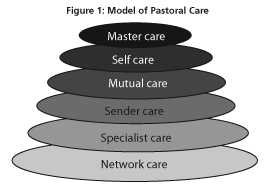Related Articles
Upgrading Member Care: Five Stones for Ethical Practice
Providing ethical and responsible member care to mission/aid staff is crucial to the health and well-being of both the individual and the organization.
Upgrading Member Care: Five Stones for Ethical Practice
Providing ethical and responsible member care to mission/aid staff is crucial to the health and well-being of both the individual and the organization.
Evaluating “A Common Word”: The Problem of “Points of Contact”
Why “points of contact” between Christianity and Islam are mythical—and why Christians must stay true to the task of missions that lies before us.
Pastoral Care of Missionaries: Turning Theory into Practice
A case study of how the Church Missionary Society of Australia has worked to develop a model of best practice in the pastoral care of missionaries.
What Makes Mission Christian?
Although Christian mission may seem easily definable, there is a growing divide among evangelicals today regarding the fundamental meaning, role and purpose of this mission.

